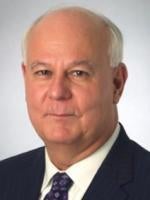On August 6, 2025, after a four-week trial in the Southern District of New York (S.D.N.Y.), the jury in the Tornado Cash case reached an impasse. While it found Roman Storm, the founder of a crypto mixing service known as “Tornado Cash,” guilty of conspiracy to operate an unlicensed money transmitting business, it was unable to reach a verdict on the more serious counts — conspiracy to commit money laundering and conspiracy to violate sanctions. The split verdict has received a lot of press coverage, but questions remain as to what any of this really means.
What are Mixers?
There are often discussions about the appeal of anonymity in cryptoassets associated with public blockchains because the assets are transferred on-chain from one pseudonymous address to another. This is unlike bank and brokerage accounts, which are tied to real names. As a result, many people mistakenly think that cryptoasset transactions are private, missing that, for Bitcoin or Ethereum, for example, all transactions are logged on a public blockchain ledger, where anyone with internet access can see the history. Even without names, it is possible to identify the individuals tied to many cryptoasset transactions because of information like IP addresses and exchange data. But mixers are designed to prevent identification.
The purpose of a cryptoasset mixer is to obscure the origin and destination of cryptoassets, assuring privacy and anonymity. A mixer pools cryptoassets sourced from multiple users’ wallets, employing an algorithm to randomly redistribute the assets over a period of time in non-uniform amounts and unpredictable intervals to new wallet addresses. In essence, a variety of cryptoassets sent by many sellers are delivered to many buyers, but no one is certain who sold what to whom because the assets were pooled before they were delivered.
Tornado Cash is a mixer developed in 2019, with the project touting its ability to provide financial privacy to digital asset users and their transactions. It is an open-source, decentralized protocol that utilizes zero-knowledge proofs (also known as ZK proofs or ZKPs) to allow for the verification of transactions without revealing the underlying data (i.e., who the sender and recipient are). It relies on immutable smart contracts, which are essentially one-party contracts between users and the platform, for the movement of assets. As a result, and as part of its model as an intermediary, Tornado Cash does not take custody of any funds. When a user deposits a cryptoasset, Tornado Cash generates a cryptographic note that can later be used to withdraw the same amount of value to a different address, which effectively breaks the traceable link between the sender and the recipient. Put another way, Tornado Cash has no control over the process.
Can Mixers Be Regulated?
With the privacy and anonymity that mixers like Tornado Cash provide, there are significant regulatory questions as to how mixers fit into existing anti-money laundering (AML) and know-your-customer (KYC) rules. These rules are important safeguards against sanctions violations — a matter of national security. Tornado Cash quickly got regulatory attention.
In August 2022, the Office of Foreign Assets Control (OFAC) of the U.S. Department of Treasury designated Tornado Cash, itself, as a sanctioned entity, alleging it helped launder US$7 billion worth of crypto assets in three years (2019 – 2022).[1] As part of its designation, OFAC alleged that North Korea’s state-funded hacking organization, the “Lazarus Group,” used the platform to launder US$600 million that it stole by hacking Axie Infinity. OFAC’s designation prohibited transactions to or from Tornado Cash, froze all Tornado Cash assets, and banned the mixer’s code.
But Tornado Cash alleged that OFAC exceeded its statutory authority. Lawsuits followed from Tornado Cash investors and crypto industry advocacy groups in multiple circuits, challenging the foundation of the designation and sanctions based on the U.S. Constitution and the Administrative Procedure Act.
In November 2024, the U.S. Court of Appeals for the Fifth Circuit (Fifth Circuit) found in favor of Tornado Cash.[2] It held that “Tornado Cash’s immutable smart contracts (the lines of privacy-enabling software code) are not the ‘property’ of a foreign national or entity.” The court concluded that the plain meaning of the term “property” requires something “capable of being owned.” In this case, the smart contracts at issue are “just code software” deployed by individuals without contractual counterparties. Hence, they are not controlled by anyone and cannot be blocked under the International Emergency Economic Powers Act.
In March 2025, in an early administrative action by the strongly pro-crypto Trump Administration, OFAC officially removed Tornado Cash from its economic sanctions list based on an administrative “review of the novel legal and policy issues raised by use of financial sanctions against financial and commercial activity occurring within technology and legal environments.”[3]
At the time, litigation was still pending in the U.S. Court of Appeals for Eleventh Circuit (Eleventh Circuit) in a case brought by crypto industry advocacy groups.[4] The parties recognized that the removal of Tornado Cash from the sanctions list rendered the litigation moot. The Eleventh Circuit granted a joint motion to dismiss the litigation between the advocacy groups and OFAC in July.
As the Fifth Circuit held, OFAC “overstepped its congressionally defined authority” when it listed Tornado Cash as a sanctioned entity.
This is consistent with the April 7, 2025, Department of Justice (DOJ) Memorandum from Deputy Attorney General Todd Blanche (Blanche Memorandum), which set forth an end to the “regulation by prosecution” strategy of the prior administration, acknowledged that the DOJ is not a digital assets regulator, and set forth a list of charging considerations for matters involving digital assets.[5] That list included holding accountable individuals who “use digital assets in furtherance of other criminal conduct…”
This approach was further confirmed in a speech given on August 21, 2025, by Matthew Galeotti, Acting Assistant Attorney General of the DOJ’s Criminal Division at a crypto lobbyist meeting, the American Innovation Project Summit in Jackson, Wyoming.[6] There, Galeotti confirmed that federal prosecutors will no longer pursue regulatory violations in cases involving digital assets — like unlicensed money transmitting under 1960(b)(1)(A) or (B) — in the absence of evidence that a defendant knew of the specific legal requirement and willfully violated it. In limited circumstances, he acknowledged that cases may be brought under Section 1960(b)(1)(C), which prohibits the transmission of funds that the defendant knows are derived from a criminal offense or are intended to be used to support unlawful activity. As Galeotti summarized, “developers of neutral tools, with no criminal intent, should not be held responsible for someone else’s misuse of those tools.”
What Were the Tornado Cash Criminal Charges?
On August 23, 2023, S.D.N.Y. announced an indictment against Roman Storm and Roman Semenov, two of the three founders of Tornado Cash, with charges for conspiracy to commit money laundering, conspiracy to commit sanctions violations, and conspiracy to operate an unlicensed money transmitting business.[7] The charges were announced when Tornado Cash was an OFAC-sanctioned entity and prior to the Blanche Memorandum. Prior to this indictment, there was a general market view that non-custodial platforms would not trigger U.S. Treasury Financial Crimes Enforcement (FinCEN) registration and compliance obligations. This 2023 indictment called that view into question.
On May 15, 2025, following the Blanche Memorandum, the U.S. Attorney’s Office filed a letter in the United States v. Storm case, trimming the charges. In the letter, the prosecutors announced that they would not proceed with the charge that Storm conspired to operate a money transmitting business while failing to register as a money service business with FinCEN, in violation of 18 U.S.C. § 1960(b)(1)(B). The same letter confirmed, consistent with the Blanche Memorandum, that the U.S. Attorney’s Office would proceed to trial on the claim that Storm conspired to violate 18 U.S.C. § 1960(b)(1)(C) by operating an unlicensed money transmitting business in a manner that “otherwise involves the transportation or transmission of funds that are known to the defendant to have been derived from a criminal offense or are intended to be used to promote or support unlawful activity….”
Hence, prior to trial, the trimmed charges made clear to the market that the lack of registration as a money service business is effectively decriminalized. However, any effort by a non-custodial platform to facilitate the movement of criminal proceeds is not and will not be prosecuted.
What Happened at Trial?
The case then proceeded to trial this past summer. The government focused its case on the purported knowledge that, as a founder of Tornado Cash, Storm knew or should have known that the platform was being used by criminals to conceal their illegal gains (promoting or supporting unlawful activity). Prosecutors questioned why Tornado Cash failed to implement certain safeguards in order to deter criminals and instead leaned into the idea that Tornado Cash could be used for money laundering purposes. The theme of the prosecution was consistent with the tone of the Blanche Memorandum — that there is a need to protect digital assets and their owners and to prevent criminal activity and cyber-terrorism.
The defense focused on Tornado Cash as a privacy tool with a legitimate market purpose, contending that most of the funds that passed through the Tornado Cash platform were unrelated to alleged criminal activity. Emphasizing the elements of the charges, defense counsel attacked the intent requirement — merely because a platform could be used to launder money does not mean that Storm willfully conspired to commit a crime, analogizing it to an ephemeral messaging application. There was also, unsurprisingly, a dispute about the nature and effectiveness of the safeguards that were implemented by Tornado Cash.
The jury deliberated for almost a week after the four-week trial concluded. It ultimately deadlocked on the two more significant charges, resulting in a partial mistrial. There is no resolution to the question of criminal liability for the creators and developers of privacy-preserving technologies whose platforms are utilized by third-parties who separately conduct illicit activities. The jury did convict Storm on one count of conspiracy to operate an unlicensed money transmitting business in connection with Tornado Cash.
Judge Polk Failla, who presided over the case, has noted that “the stability of the [guilty] verdict” is in question. An appeal to the U.S. Court of Appeals for the Second Circuit will most certainly follow pending resolution of post-trial motions.
What Does This Mean?
The Blanche Memorandum and the trimmed charges in the Storm case clarify DOJ’s enforcement priorities, but the verdict provides no clear guidance on how the digital assets community should proceed. Mixers can be abused by terrorists and other outlaws, but they also have benign uses, such as disguising the delivery of financial assistance to Ukrainians under siege. Financial privacy is neither invariably good nor invariably bad. There are bills coursing through Congress that could expressly protect the creators and users of decentralized asset infrastructure, such as ZKPs and mixers, in the name of financial privacy.
Until Congress acts to clarify the law, however, there is still regulatory and criminal exposure for developers and operators of decentralized protocols and other digital asset companies. We recommend consultation with counsel on how to best address AML, KYC, and licensing risks through appropriate compliance programs and implementation of other safeguards.
[1] https://home.treasury.gov/news/press-releases/jy0916
[2]Van Loon v. Dept of Treasury, No. 23-50669 (5th Cir. 2024).
[3] https://home.treasury.gov/news/press-releases/sb0057
[4]Coin Center, et al. v. Secretary, U.S. Dept of Treasury, No. 23-13698 (11th Cir. 2024).
[5] https://www.justice.gov/dag/media/1395781/dl
[6] https://www.justice.gov/opa/speech/acting-assistant-attorney-general-matthew-r-galeotti-delivers-remarks-american
[7] https://www.justice.gov/usao-sdny/pr/tornado-cash-founders-charged-money-laundering-and-sanctions-violations





 />i
/>i

